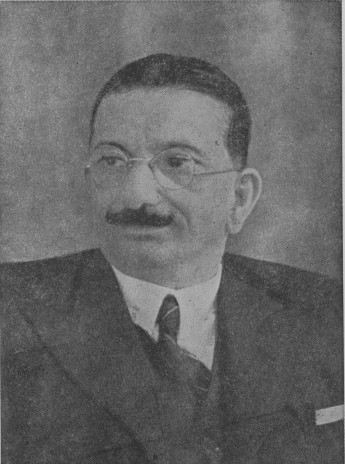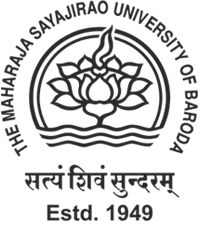

Ardeshir Ruttonji Wadia
-
Tenure:
1949-1952
Profile:
Professor Wadia was one of India's leading educationists, and this resulted in his being called upon to take up one responsibility after another till he was eighty or so. After twenty five years (1917-1942) as Professor and Head of the Department of Philosophy in the University of Mysore, he served in Mysore as Director of Public Instruction for a brief period before retiring. But he was not allowed to enjoy his retirement for long. In 1946, when he was sixty, he became Principal of the Victoria College at Gwalior and left it in 1949 to become the first Pro-Vice Chancellor of the new Maharaja Sayajirao University of Baroda. The excitement of building a new University appealed to him, and he left it in 1952 when he felt the excitement diminishing.
Professor Wadia was nominated to the Rajya Sabha in 1954, and was a member of that august body till 1966. He became a member of the University Grants Commission in 1960 when he was 72, and continued to serve it till his 80th year. As a member of the University Grants Commission, he was nominated to the Chairmanship of a number of sub-committees and his work took him to universities and potential universities in every part of the country.
During the course of his long career Professor Wadia received several honours. He was awarded the title of Rajasevasakta by the Maharajah of Mysore, and the University of Mysore awarded him the honorary degree of D.Litt. The Government of India awarded him a Padma Bhushan in 1961.
Professor Wadia was an enthusiastic social reformer and he wanted Indian society to change rapidly. The inequalities of caste, especially untouchability, the evils of early marriage, the tragic consequences of widowhood (especially child widowhood) among the upper castes, and the atmosphere of orthodoxy which charac terized Mysore society in the post-World War I years, all streng thened his resolution to stress social philosophy.
Professor Wadia's teaching and administrative duties were throughout heavy, and he did not get the leisure he needed for research. His writings were responses to specific invitations to lecture (as for example, his Civilization as a Co-operative Adventure, and Religion as a Quest for Values) or to certain topical questions. He also wrote a small book on Zoroaster for G.A. Natesan & Co. of Madras. His contributions to what might be called "technical philosophy" are to be found, however, in such journals as Mind, and Philosophy (U.K.), Monist, Philosophical Review, and International Journal of Ethics (U.S.A.), and Philosophical Quarterly, and other journals in India.

